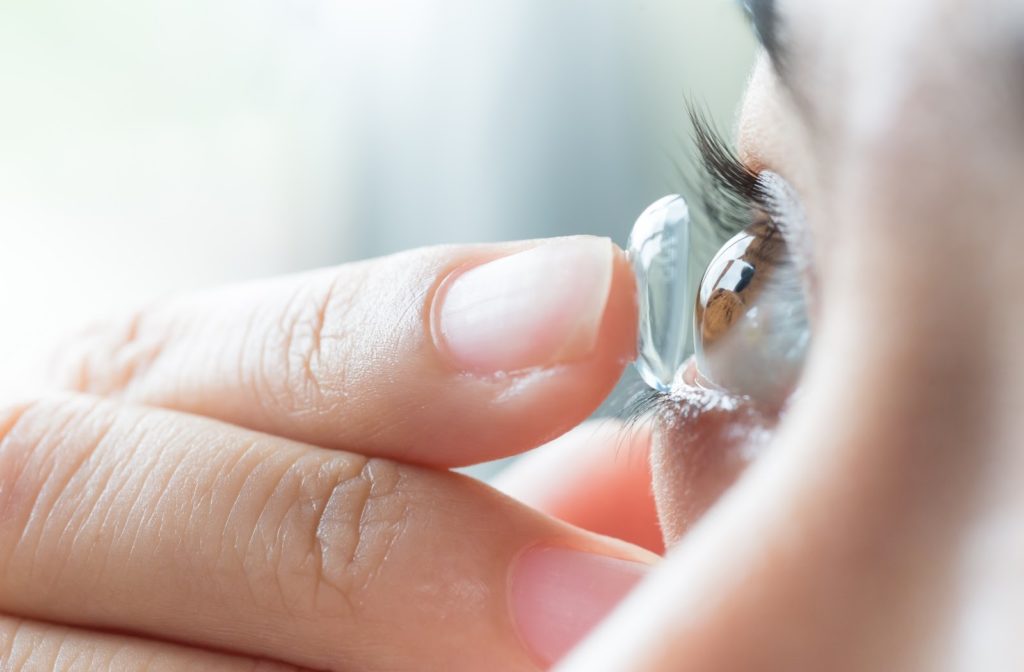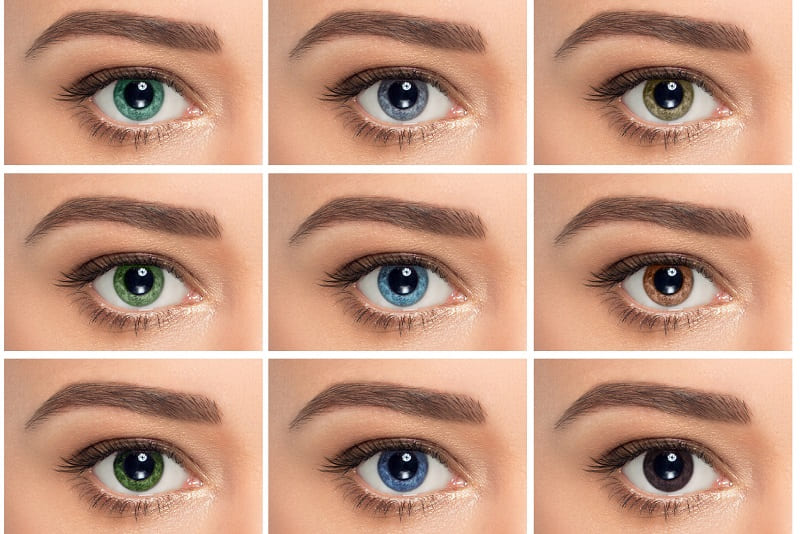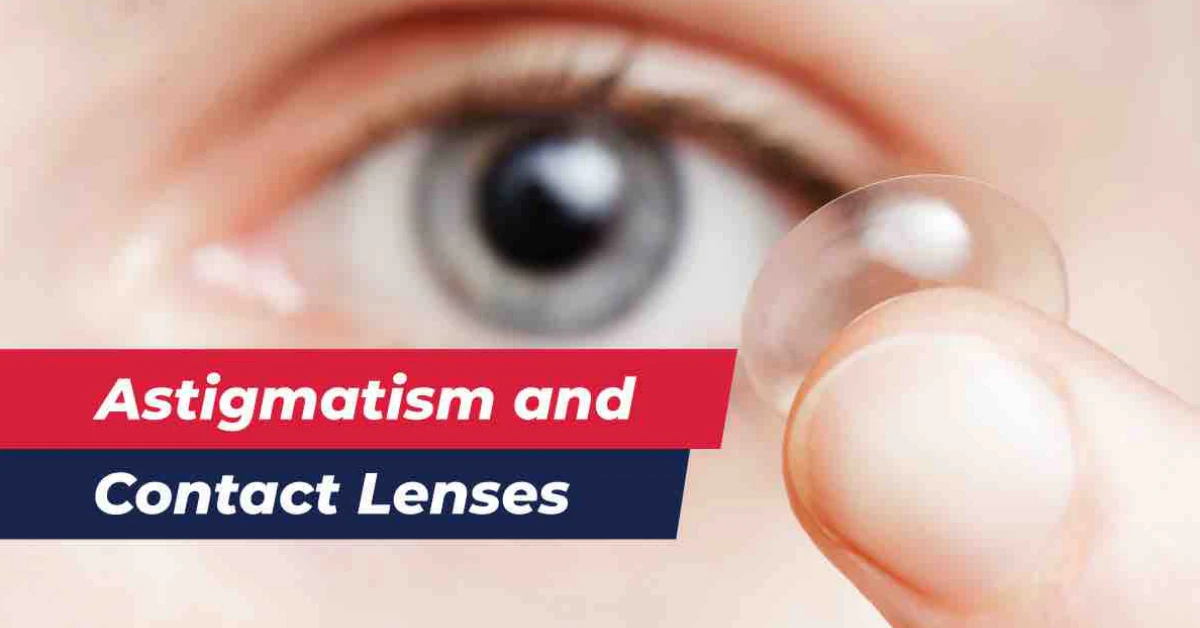You just got your eye test back. The doctor says you have astigmatism. And now? You’re wondering if contacts are off the table.
Here’s the real talk: they’re not.
You can wear contacts with astigmatism — you just need the right kind. And yeah, the world of toric lenses, daily disposables, and axis numbers might feel like a whole new language. But don’t sweat it. I’m here to break it all down — no jargon, no fluff, just honest, straightforward advice.
Because trust me? Life with astigmatism doesn’t have to mean stuck in glasses forever.
Do They Work?

First thing’s first: yes, contacts for astigmatism work. But not the regular kind you pick up at the drugstore.
Astigmatism means your cornea — or sometimes your lens — is shaped more like a football than a basketball. That uneven curve bends light wrong, which means blurry vision up close, far away, everywhere. Regular soft lenses can’t fix that uneven focus. They just float and move.
That’s where toric lenses come in. They’re designed differently. Think of them like gloves — custom-shaped to fit your eye’s unique curve.
According to experts at Ezekiel Eyes, toric lenses have different powers in different directions (called meridians) and stay stable on your eye thanks to a little weight or thin zone at the bottom. So they don’t spin. And when they don’t spin, they correct right.
No, they’re not as simple as regular lenses. But are they worth it? Ask anyone who went from squinting through glasses during night drives to seeing street signs like they’re printed on clean glass. Yeah. Totally worth it.
Types of Lenses
Not all astigmatism is the same — so not all lenses are either. Your prescription, lifestyle, and comfort all matter. Let’s walk through your options.
Toric Contact Lenses
This is the big category. Toric lenses are made specifically for astigmatism. They come in soft, rigid, and hybrid forms — but most people start with soft.
Soft toric lenses? Comfy, easy to adapt to. But fitting is everything. If the axis is off — even by 10 degrees — your vision gets wavy. That’s why you need a proper eye exam, not just an online order based on your glasses Rx.
Daily Disposables for Astigmatism
Daily contacts for astigmatism are a game-changer, especially if you’re new to contacts or have dry eyes.
No cleaning. No cases. Just pop in a fresh pair every morning, toss it at night. It’s like putting on a clean pair of socks every day — your eyes feel better for it.
Top picks for best daily contact lenses with astigmatism:
- DAILIES Total1 for Astigmatism — super soft, high water content, great for dry eyes.
- 1-Day Acuvue Moist for Astigmatism — UV protection, all-day moisture.
- Clariti 1 Day Toric — budget-friendly, made with silicone hydrogel for oxygen flow.
If you’re asking about best contacts for first time users with astigmatism? Start here. Daily disposables are your best friend.
Monthly or Bi-Weekly Toric Lenses
Want to save money over time? Reusable lenses might be your thing.
You clean and store them — so you’ve got to be on top of hygiene. But they last longer and cost less per wear.
Popular ones:
- Acuvue Oasys for Astigmatism — incredibly popular, great comfort, approved for up to 6 nights of continuous wear (more on that in a sec).
- Biofinity Toric — made by CooperVision, super breathable, ideal for people with active lifestyles.
These are solid, long-term options — but only if you’ll actually keep up with the care.
Rigid Gas Permeable Lenses
Okay, not everyone loves these. They take time to get used to. But if you’ve got high or irregular astigmatism (maybe from injury or keratoconus), RGPs can offer way sharper vision than soft lenses.
They hold their shape, which means they smooth out your eye’s irregular curve. And because they let tons of oxygen through, your eyes stay healthier long-term.
Downside? They can pop out or feel “in the way” at first. But many people who switch swear they’ll never go back.
Hybrid Lenses
Want the crisp vision of RGP and the comfort of soft? Hybrid lenses give you both.
Rigid center for clarity. Soft outer skirt for comfort. Brands like SynergEyes HD specialize in these — but they’re not cheap, and fitting is complex.
Worth it for some. Overkill for others.
Best Brands & Budget Picks
| Brand & Model | Best For | Wear Schedule | Average 90pk Price |
|---|---|---|---|
| DAILIES Total1 for Astigmatism | Dry eyes, comfort | Daily disposable | $80–$100 |
| 1-Day Acuvue Moist for Astigmatism | All-day wear, UV protection | Daily disposable | $70–$90 |
| Acuvue Oasys for Astigmatism | Extended wear, active use | Bi-weekly | $60–$80 |
| Biofinity Toric | Breathability, monthly wear | Monthly | $50–$70 |
| Clariti 1 Day Toric | Budget, silicone hydrogel | Daily disposable | $60–$80 |
Lets be real — contacts aren’t cheap. Especially with astigmatism. So when you hear “best eye lenses brand,” you’re probably also thinking: “Can I afford it?”
Here’s the scoop on top brands — and how to save without sacrificing quality.
Best Daily Contact Lenses
DAILIES and Acuvue dominate here for good reason.
DAILIES Total1 for Astigmatism has that “no lens” feel — perfect if you’re sensitive. And 1-Day Acuvue Moist? Super reliable, widely available.
But you don’t always need the priciest option.
Cheap Contacts for Astigmatism
You can find affordable toric lenses — but don’t go bargain-hunting blindly.
Here’s how to save:
- Buy in bulk online — retailers like 1-800 Contacts or Lens.com offer subscription discounts (10–15% off).
- Check for rebates — Alcon (Acuvue) and CooperVision often run $20–$50 back promotions.
- Stick with reputable brands. “Generic torics” may seem cheap, but poor fit leads to discomfort — or worse, eye damage.
And hey — better to pay a little more for a perfect fit than waste money on something you can’t wear.
Style & Special Needs

Let’s talk about what matters to you — not just function, but style and convenience.
Colored Contacts for Astigmatism
Yes! They exist. And no, you don’t have to choose between vision and looking cool.
Brands like Air Optix Colors for Astigmatism and FreshLook ColorBlends Toric let you change your eye color while still correcting astigmatism.
Downside? Fewer shade options than regular colored lenses. But if you want subtle enhancement or a bold look, they’re totally doable.
Just remember: they still require a prescription and fitting. No skipping that step.
Transition Contacts for Astigmatism?
Here’s a hard truth: there are no photochromic (transition) soft contact lenses for astigmatism available right now.
Some people ask — can I get contacts that darken in the sun? Not yet. The tech is still too tricky to embed in toric lenses.
Solution? Wear clear contacts and pop on prescription sunglasses. Not ideal, but it works.
➤ Curious about Eye Color Ratios? Check out Eye Color Percentages Around The World: A Global Look.
Wearing & Caring
You’ve got your lenses. Now what?
Lines on Contact Lenses Astigmatism
Ever notice little marks or lines on your toric lenses? Don’t panic — that’s normal.
Those are alignment markers. Tiny laser etchings that help your eye doctor see if the lens is rotating on your eye. Some you might see when inserting; once it’s in place, they usually fade from view.
They’re not a defect. They’re a feature — for accuracy.
First-Time User Tips
If you’re trying contacts for the first time with astigmatism, congrats! But go slow.
Yes, they can feel weird at first. Yes, getting them in can be a struggle.
Pro tips:
- Practice with your optometrist. They’ve seen every fumble — you’re not alone.
- Start with dailies. No cleaning stress, no “did I disinfect that right?” anxiety.
- Use a well-lit mirror. Wash your hands. Breathe.
You’ll get the hang of it. Everyone does.
Best Extended Wear Contact Lenses
Want to sleep in your contacts?
There are extended wear options — but they’re limited for astigmatism.
Your best bet? Air Optix for Astigmatism — approved for up to 6 nights of continuous wear.
But big caveat: extended wear increases risk of infection, corneal swelling, and ulcers. You must have healthy eyes and regular checkups.
And honestly? If you’re not a perfect candidate, dailies are safer and just as convenient.
Multifocal Contacts for Astigmatism
Over 40? Dealing with both astigmatism and presbyopia (trouble reading small print)?
Yup — multifocal toric lenses are a thing.
Brands like Acuvue Oasys Multifocal for Astigmatism and Biofinity Multifocal Toric combine correction for near, far, and astigmatism.
They take more trial and error to fit right. And you might need to adjust how you use them — like tilting your head slightly to read. But for many? It’s freedom from reading glasses.
Your Next Step

Okay — you’ve read the options. You’ve seen the brands. But what now?
Go see your eye doctor. Not because I said so. Because only they can give you a proper toric fitting.
“But I found these cheap ones online!” — I hear you. But your prescription isn’t just power. It’s cylinder, axis, base curve, diameter.
Wrong axis? Blurry vision. Wrong fit? Corneal damage. Not worth the risk.
Here’s your plan:
- Get a comprehensive eye exam — ask for corneal topography if your astigmatism is high.
- Request a toric lens fitting. Some clinics charge extra — it’s worth it.
- Try sample lenses. Test them at night, on screens, in low light.
- Buy bulk only after you’re sure.
- Follow up — even if everything feels perfect.
And listen — don’t let anyone tell you contacts aren’t for you because of astigmatism. That advice’s from 20 years ago.
Today? The tech is better, the comfort is real, and the freedom is undeniable.
Precision 1 Contacts for Astigmatism
Worth a special shoutout: Precision 1 for Astigmatism by Alcon.
It’s built on the Precision 1 daily platform — 100% silicone hydrogel, so your eyes get maximum oxygen. They market it as “invisible comfort,” and honestly? It’s not far off.
It uses something called SSOC (Smooth Surface Optimized for Comfort) tech — fancy, I know — but it means less friction, less dryness.
If you’re someone who wears contacts all day and ends up with tired, dry eyes? This one’s a serious contender.
Priced in the mid-range, it’s not the cheapest — but it’s one of the most breathable dailies out there.
Final Word
So, can you wear contacts with astigmatism?
Yes. Yes, you absolutely can.
From the best daily contact lenses to affordable monthly options, from colored looks to multifocal needs — there’s no reason to settle for blurry vision or feeling stuck in frames.
The key? Start with your eye doctor. Get fitted right. Don’t rush.
And when you finally slide in that first perfect pair and the world snaps into focus — no glare, no fog, just clarity — you’ll wonder why you waited so long.
You’ve got this.
And hey — if you’ve made it this far, you’re already on the right path. What’s your biggest concern about trying contacts with astigmatism? Drop it below. Let’s figure it out together.


















Leave a Reply
You must be logged in to post a comment.